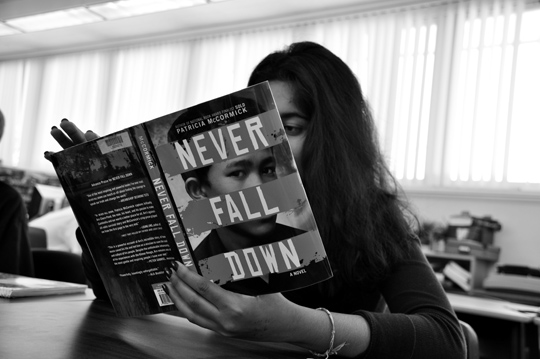 History provides us many vital lessons. Most importantly, it is a testament of what must not be repeated. If somebody asked an average person about a few of these horrific incidents in history were, they might mention the Holocaust or the colonization of the Congo. Not many would think to mention a more obscure historical event, such as the 1975 Communist revolution brought on by the Khmer Rouge in Cambodia. This regime of radicals was comprised of soldiers who herded the inhabitants of Cambodia to labor camps in the countrysides. Two million people—about a fourth of Cambodia’s population—died from exhaustion, starvation, disease or execution. The goal of turning the Cambodians into the agricultural “Old People” cut off foreign influence and nearly eradicated urban institutions.
History provides us many vital lessons. Most importantly, it is a testament of what must not be repeated. If somebody asked an average person about a few of these horrific incidents in history were, they might mention the Holocaust or the colonization of the Congo. Not many would think to mention a more obscure historical event, such as the 1975 Communist revolution brought on by the Khmer Rouge in Cambodia. This regime of radicals was comprised of soldiers who herded the inhabitants of Cambodia to labor camps in the countrysides. Two million people—about a fourth of Cambodia’s population—died from exhaustion, starvation, disease or execution. The goal of turning the Cambodians into the agricultural “Old People” cut off foreign influence and nearly eradicated urban institutions.
“Never Fall Down,” by Patricia McCormick, is one of those novels that completely engages the reader with the grave subject matter of the genocide. Upon being introduced to Arn Chorn-Pond by a neighbor in her New York apartment, McCormick wrote a book that tells the true story of Arn as a young boy during Cambodia’s Pol Pot Communist regime. At the beginning of the novel, Arn is portrayed as an average Cambodian boy who must be resourceful to obtain the money needed for survival. Despite his hardships, he is a jovial child, who loves dancing around to street music and enjoys the little things in life.
When news of Cambodia’s Khmer Rouge revolutionaries reaches his city, Chorn-Pond awaits the event, for nothing particularly amusing happens in his life. Once the Khmer Rouge soldiers begin marching the city’s population to the countryside, his vivaciousness disappears, and the plot takes a drastic turn. Pond must mature fast, as he transitions from an easygoing kid to just one out of the hundreds who are oppressed by the soldiers of their own country. Survival now depends not on selling ice cream, but upon playing the khim and shooting a gun to please the despotic soldiers.
The first page hooks the reader in not with its content, but rather with McCormick’s writing style. Her voice is very clearly the first-person view of a Cambodian boy, as the sentences are short, choppy and grammatically incorrect. Although one may start off worried about having to read an entire book with phrases like “Ladies in sarong walk so soft,” Arn’s straightforward tone soon fits in with the setting and events –it makes the account more powerful.
One forgets that the book was written by an American woman, and develops a penchant for this boy who actually went through the labor camp almost 40 years ago. Usually, while reading a heart-wrenching book, one takes solace in knowing that the characters are purely fictional. It’s always easier to dwell on the fact that the story was purely made up from imagination. However, the emotion in this novel is greatly amplified by the fact that this character that the reader is so empathetic toward really did exist.
Unfortunately, the reader is forced to move through the story a bit too fast. About halfway through the book, the reader realizes it’s been three years since Chorn-Pond first embarked on his journey with the Khmer Rouge. This large time frame takes away from the key idea that the character is gradually growing accustomed to camp life. The short sentences are very in the moment and accurately portray the emotions of an instant, but McCormick could definitely paint the whole picture a little bit better. Although the stories of Arn’s disgusting dinner that night or a stolen sugar cube make the story so enjoyable, they also make it hard to realize that years have gone by in the grand scheme of things. Nevertheless, McCormick’s emotional writing style makes up for the minor technical issues.
Arn Chorn-Pond has now turned the stigma of his past into a passion for promoting peace. He has founded several humanitarian groups, such as the Cambodian Volunteers for Community Development organization and the Cambodian Living Arts group. His achievements in the United States and the many honors he has received for his work are the opposite of his turbulent childhood, making this novel a must read. McCormick captures the essence of the Cambodian genocide in an intimate way that no history book ever could.
Talon Book Review: ‘Never Fall Down’
September 25, 2012
Story continues below advertisement
0
More to Discover








